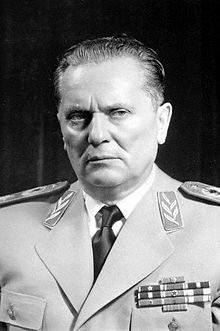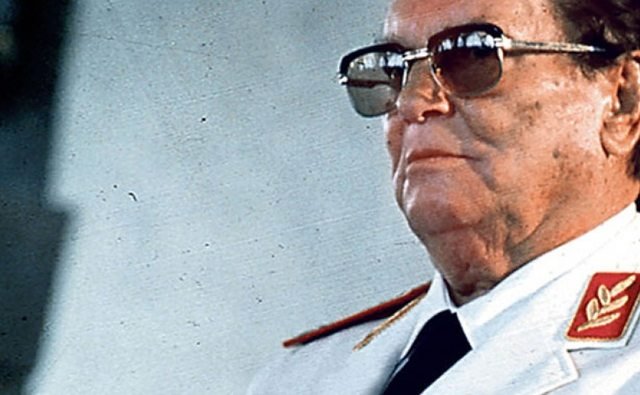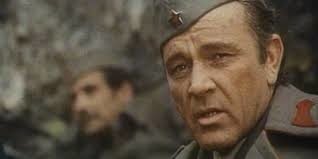Josip Broz Tito - The story about ultimate dictator (2/2)
In my post from last night I explained about the rise of communist party on the western Balkans Peninsula under Josip Broz Tito (1892 - 1980) and the forming of Socialist Federal Republic of Yugoslavia after World War II under Tito as a sole ruler. If you are interested to read that post, here's the link:
Josip Broz Tito - The story about ultimate dictator (1/2).

Red terror
Immediately after the World War II, Communist Party of Yugoslavia organised the elections in which they banned all other parties. Two months after the elections, they adopted Soviet style of politics. In short time, drastic changes were made in laws and constitution. The communist party promoted hard work and atheism in the name of "brotherhood and unity". You couldn't join the party if you were believer and you couldn't get any important job if you were not a member of a party. Suddenly, everything became the ownership of the communist party. People's properties were taken from them and divided in a new way. Many books were burned, many songs were forbidden, you couldn't speak freely, you had to be careful about every word you say, because you could easily attract the attention of secret organisations of the party. That was a beginning of dictatorship and they decided to punish all that had anything with any different ideology.
So, in the year after World War II more than 200 000 people were imprisoned, tortured and executed, including a large number of priests an nuns.
And just a year before, during the World War II, casualties in the whole Yugoslavia was nearly million people. So, communist party, with Tito on it's top, wanted to put these countries in the order using strict laws and putting soldiers on each corner of the streets. The freedom of speech and even the freedom of thought were heavily endangered.
In that time Soviet Russia wanted to control the whole economy of eastern block, but they found the resistance in Yugoslavia.
Stalin feared that control of Yugoslavia was slipping from his hands and secretly sent spies and organized unsuccessful assassination of Tito. Tito wanted for his Yugoslavia to be completely independent of any economic influence, no matter is the word about western or eastern block. He stopped exporting all Yugoslavian products and also stopped any import of foreign products. He proved that Yugoslavia can survive and that the Republic is completely sustainable.

During the 70's in Yugoslavia came to few political and cultural movements organized by poets, artists and students and they called for economic, cultural and political changes in Yugoslavia.
One of those movements was "Croatian Spring". Many of members and participants of this movement were imprisoned, exiled and some were even killed. One of the imprisoned ones was Franjo Tuđman, who will many years later become the first president of independent Republic of Croatia.
My grandpa told me that once, when he was young, he walked on the road between two villages.
By the side of road, there was a cross and he fell on knees and said the payer. Then, two soldiers came to him and asked him why he doesn't bow and pray to Tito instead to Christ. He told him that he would pray to Tito if they would crucify Tito just as the Christ was. So, he spent next three months in prison only for saying that. And he was beaten every day.
Tito's way
When Tito and Stalin split, Tito co - founded the Non - Aligned Movement along with the leaders of Egypt, India, Indonesia and Ghana. They made some important trade contracts and they worked on close ties with countries of Asia. With time, relations between Yugoslavia and the West became good.
Tito was respected by almost every famous politician in the world.
It is known that he got good relations with Che Guevara, Castro, Arafat, Haile Selassie and Gaddafi but also with three of British Prime Ministers and five of American Presidents.
He also met a lot of celebrities, married three times, but also had a lot of other women, and he was played by Richard Burton in war movie "Sutjeska" form 1973.

He was considered as a benevolent dictator.
All his moves were in benefit of the whole population, however they were strict and harsh. Many factories were opened in Yugoslavia during his rule and all people had jobs . Actually, in that socialistic days, the workers were the owners of the factory. They would get the shares along with the payment. It was free education for all kids or students and free medical care for all working people and their children. Many project buidings were built because many peasants came from the villages to the cities to work in these factories. Also peasants had belnefits and freedom to sell their products. They were singing songs to Tito and celebrated his birthday (which was on this day) as a holiday.
Thanks for this historic post - in my youth he was seen often in the news I remember
Many people remember him, thanks for comment :)
Thanks again ! It's important we don't forget the many hellish things
that occurred under communist regimes.
and we will never will forget
two great articles
Thanks!
I wondered where Serbia and the rest came from. Thanks for that info!
Thank you